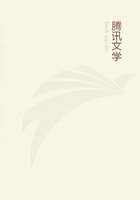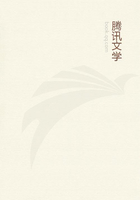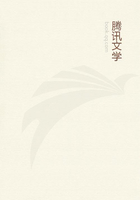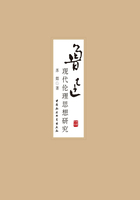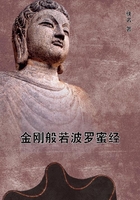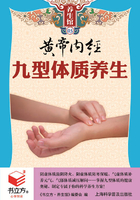Again, since the essence of our mind consists solely in knowledge, whereof the beginning and the foundation is God (I:xv., &II:xlvii.Note), it becomes clear to us, in what manner and way our mind, as to its essence and existence, follows from the divine nature and constantly depends on God. I have thought it worth while here to call attention to this, in order to show by this example how the knowledge of particular things, which I have called intuitive or of the third kind (II:xl.Note.ii.), is potent, and more powerful than the universal knowledge, which I have styled knowledge of the second kind. For, although in Part I showed in general terms, that all things (and consequently, also, the human mind) depend as to their essence and existence on God, yet that demonstration, though legitimate and placed beyond the chances of doubt, does not affect our mind so much, as when the same conclusion is derived from the actual essence of some particular thing, which we say depends on God.
Prop. XXXVII. There is nothing in nature, which is contrary to this intellectual love, or which can take it away.
Proof.- This intellectual love follows necessarily from the nature of the mind, in so far as the latter is regarded through the nature of God as an eternal truth (V:xxxiii. and V:xxix.). If, therefore, there should be anything which would be contrary to this love, that thing would be contrary to that which is true; consequently, that, which should be able to take away this love, would cause that which is true to be false; an obvious absurdity. Therefore there is nothing in nature which, &c. Q.E.D.
Note.- The Axiom of Part IV. has reference to particular things, in so far as they are regarded in relation to a given time and place: of this, I think, no one can doubt.
Prop. XXXVIII. In proportion as the mind understands more things by the second and third kind of knowledge, it is less subject to those emotions which are evil, and stands in less fear of death.
Proof.- The mind's essence consists in knowledge (II:xi.); therefore, in proportion as the mind understands more things by the second and third kinds of knowledge, the greater will be the part of it that endures (V:xxix. and V:xxiii.), and, consequently (by the last Prop.), the greater will be the part that is not touched by the emotions, which are contrary to our nature, or in other words, evil (IV:xxx.). Thus, in proportion as the mind understands more things by the second and third kinds of knowledge, the greater will be the part of it, that remains unimpaired, and, consequently, less subject to emotions, &c. Q.E.D.
Note.- Hence we understand that point which I touched on in IV:xxxix.Note, and which I promised to explain in this Part; namely, that death becomes less hurtful, in proportion as the mind's clear and distinct knowledge is greater, and, consequently, in proportion as the mind loves God more. Again, since from the third kind of knowledge arises the highest possible acquiescence (V:xxvii.), it follows that the human mind can attain to being of such a nature, that the part thereof which we have shown to perish with the body (V:xxi.) should be of little importance when compared with the part which endures. But I will soon treat of the subject at greater length.
Prop. XXXIX. He, who possesses a body capable of the greatest number of activities, possesses a mind whereof the greatest part is eternal.
Proof.- He, who possesses a body capable of the greatest number of activities, is least agitated by those emotions which are evil (IV:xxxviii.) that is (IV:xxx.), by those emotions which are contrary to our nature; therefore (V:x.), he possesses the power of arranging and associating the modifications of the body according to the intellectual order, and, consequently, of bringing it about, that all the modifications of the body should be referred to the idea of God; whence it will come to pass that (V:xv.) he will be affected with love towards God, which (V:xvi) must occupy or constitute the chief part of the mind; therefore (V:xxxiii.), such a man will possess a mind whereof the chief part is eternal. Q.E.D.
Note.- Since human bodies are capable of the greatest number of activities, there is no doubt but that they may be of such a nature, that they may be referred to minds possessing a great knowledge of themselves and of God, and whereof the greatest or chief part is eternal, and, therefore, that they should scarcely fear death. But, in order that this may be understood more clearly, we must here call to mind, that we live in a state of perpetual variation, and, according as we are changed for the better or the worse, we are called happy or unhappy.
For he, who, from being an infant or a child, becomes a corpse, is called unhappy; whereas it is set down to happiness, if we have been able to live through the whole period of life with a sound mind in a sound body. And, in reality, he, who, as in the case of an infant or a child, has a body capable of very few activities, and depending, for the most part, on external causes, has a mind which, considered in itself alone, is scarcely conscious of itself, or of God, or of things; whereas, he, who has a body capable of very many activities, has a mind which, considered in itself alone, is highly conscious of itself, of God, and of things. In this life, therefore, we primarily endeavour to bring it about, that the body of a child, in so far as its nature allows and conduces thereto, may be changed into something else capable of very many activities, and referable to a mind which is highly conscious of itself, of God, and of things; and we desire so to change it, that what is referred to its imagination and memory may become insignificant, in comparison with its intellect, as I have already said in the note to the last Proposition.
Prop. XL. In proportion as each thing possesses more of perfection, so is it more active, and less passive; and, vice versa, in proportion as it is more active, so is it more perfect.

